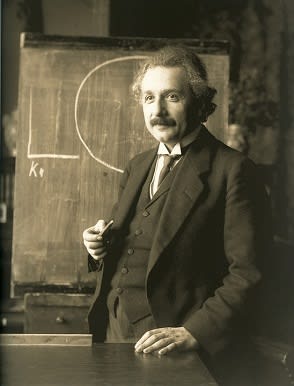Let’s be honest: PhDs can seem a bit strange.
Few other degrees involve spending so long focussed on one single topic. Even less give you a new title at the end. And none are harder to explain at BBQs, hair salons, or in any other situation in which someone might ask ‘so, you’re spending three years shooting lasers at invisible dots in a darkened room, but it’s going to make you a doctor?’
So it’s no surprise that the PhD is subject to a few myths and misunderstandings.
In this post we’ve had a go at busting some of them. Because, however odd postgraduate research can seem, it’s a lot more sensible, accessible, popular and rewarding than you might think.
#1 You have to be a genius to do a PhD
One of the most misleading myths about PhD study is that it requires exceptional intelligence and that only a small number of remarkable people can achieve a doctorate.
This isn’t true.
A PhD isn’t an intelligence test. It’s a research project.
A doctorate won’t turn you into a genius (or confirm that you already are one). It will make you an expert in a very specific topic in a very specific field.
You won’t win any more pub quizzes with a PhD and you don’t have to submit an IQ test to be accepted for one. You just have to have the dedication, skills and subject knowledge to see through an original research project at an advanced level.
If you’ve got those things and you can put together a convincing research proposal, you will be accepted for a PhD.
And if you’re accepted for a PhD, you can complete one.
#2 PhDs are only for people who want to be academics
It’s true that a PhD is usually the entry qualification for a career in academic teaching and research. If you want to work as a university lecturer, you’ll almost certainly need a doctorate.
But that doesn’t mean that a PhD is only useful for a career in academia – or that everyone with a PhD goes on to do an academic job.
On the one hand, this is part of the reality of the job market in higher education: there are only a limited number of academic posts available and competition for them is high.
On the other hand, the modern doctorate is becoming a much more versatile qualification, supported by new initiatives focussing on employability and transferrable skills.
Today’s PhD graduates aren’t just experts in medieval lyric poetry, protein folding or economic theory: they also have three years’ experience of project management, public speaking, and professional networking.
These skills are valued in a range of non-academic jobs – and employers are increasingly recognising that PhD-holders possess them.
#3 A PhD is just three years of research
Well, for a start, a PhD isn’t necessarily three years long. Part-time students can take six or more and even full-time doctorates often run into a fourth ‘writing up’ year.
Often this extra length is due to the fact that PhD study is about much more than just completing a thesis and submitting a dissertation.
‘Structured’ approaches to PhD study are becoming common around the world. These programmes involve extra training in research methods, ethics, teaching or presentation skills – all the stuff that helps make the modern PhD such a versatile qualification.
You’ll also have plenty of time to find new development opportunities of your own. Taking part in academic conferences, teaching undergraduates and even publishing research are all common components of a PhD.
As well as enhancing your CV, these activities keep PhD study interesting and varied. Research is important, of course, but there’s probably a lot more to a PhD than you think.
#4 A PhD should lead to a brilliant, world-changing, discovery
What makes a PhD a PhD? The answer is simple enough: your thesis will need to offer a ‘significant original contribution to knowledge’.
That’s the classic criteria for a PhD thesis to pass examination, but what does it actually mean? Do you need to invent a new form of space travel? Discover that King Alfred the Great was actually a woman? Prove that everything anyone has ever written about Shakespeare’s plays is wrong?
Nope.
Of course it would be great if you happened to produce an incredible technological breakthrough, come across a momentous new piece of historical information or redefine the scholarship in your field at a single stroke. But you probably won’t.
Research is rarely that dramatic – at PhD level or otherwise. Your thesis just has to be original (no one has arrived at the same results before) and academically significant (your data and conclusions should be useful to other scholars in your field).
You can change the world later.
#5 PhD study is lonely, depressing and unrewarding
Three years of research is a tough challenge. And a PhD is hard.
You’ll probably have moments when you get a bit fed up. You may even have days when the validity of Marxist theory in a post-capitalist economy or the representation of Britain in eighteenth-century travel literature just don’t seem as interesting as you thought they did.
And, if you look around, you’ll probably find other students voicing similar sentiments (though not necessarily about the Marxism or the travel books). That’s normal.
But it’s just as normal to have incredible breakthroughs in the library or laboratory or to take pride in the many highly rewarding personal achievements and milestones that occur within a doctorate – from successful presentations and publications to other forms of recognition.
And it’s normal to share and celebrate those with your supervisors, or with other students at your university or within wider scholarly networks. Those other people will be a big part of your PhD experience and, like you, they know how awesome and impressive it is to be making that significant original contribution to knowledge. Even if you aren’t inventing time travel.
A PhD is hard, but it’s not lonely, it’s not depressing and it’s about as far removed from unrewarding as you could possibly imagine.
From the serious to the silly: our free newsletter will be your PhD companion
Twitter for PhD students
Speaking to other students is a great way to sift myth from reality - and you can do it really easily on Twitter.

 Continue with Facebook
Continue with Facebook










